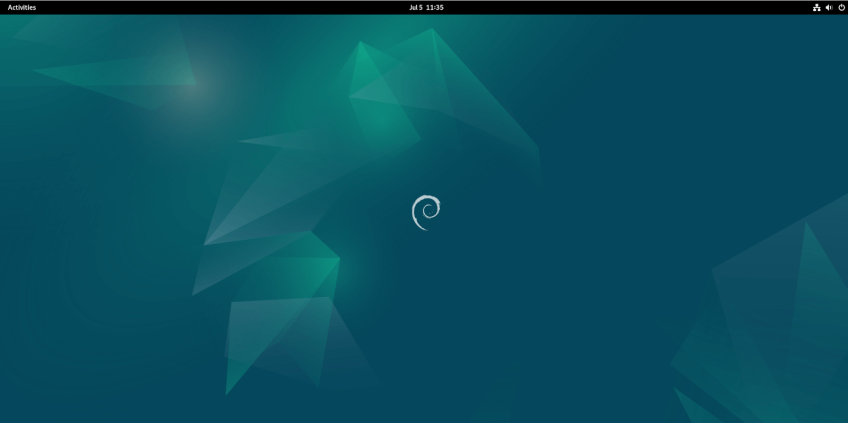Debian 12 "Bookworm" Release | What's New?

Debian 12, codenamed ‘Bookworm,’ was officially released on June 10th, 2023, after months of intense work by the Debian Project development team. This latest Debian release takes over from Debian 11 (codenamed ‘Bullseye’). Debian 12 is an LTS release, and like all Debian LTS releases, it will be supported for the next five years.
#What is Debian 12?
Debian 12 Bookworm,’ is the latest Debian GNU/Linux operating system release, replacing Debian 11 ‘Bullseye,’ released on August 14th, 2021. The new release includes updated versions of most packages compared to Debian 11, including systemd, GCC and more, as well as improved hardware support, newer AMD, and a focus on security and stability.
#How to install Debian 12
To install Debian 12 manually, head over to the official Debian download page and grab the DVD ISO or the netinst ISO available in 64-bit and 32-bit architectures.
Alternatively, you can save time and deploy a pre-configured Debian server on Cherry Servers in minutes, prepared and provisioned automatically.
#What’s new in Debian 12?
Debian 12 brings 11,089 new software packages, taking the total number of packages on Debian's repository to over 64,000. Out of more than 43,000 packages in this release, 6,296 were obsoleted.
So, let’s check out what’s new in Debian 12 “bookworm” release.
#1. New Linux kernel
Debian 12 'Bookworm' comes with Linux kernel 6.1, the current LTS (Long Term Support) release. The kernel comes with a bucketful of new features and improvements that aim to enhance the Linux system's security and performance.
You can verify the Linux kernel as shown.
uname -r
Major highlights of Linux kernel 6.1 include:
- Mainline support for RUST, a general-purpose programming language;
- Significant performance enhancements for the BTRFS filesystem;
- Performance improvements for EXT4 filesystem;
- Maple Tree data structure support;
- New security controls that facilitate the creation of user namespaces;
- Support for next-generation CPUs and GPUs. This includes improved support for AMD Ryzen and Intel 'Meteor Lake' chips;
- A range of improvements for Intel Arc Graphics DG2/Alchemist;
- A stack of hardware support, including support for gaming devices such as Xbox gaming controllers, sound support on Apple Silico, and support for audio on the Mediatek MT8186, among others.
#2. Non-free Software in primary ISO files installer
One of the notable changes of Debian 12 is the inclusion of non-free packages in DVD ISO images.
From the get-go, Debian has always packaged free and non-free packages in separate ISO files. Hence, if you needed, for instance, non-free graphic drivers or firmware for unique hardware, you'd need to download a separate ISO file.
With Debian 12, the DVD ISO file now contains both free and non-free software packages. Going forward, users will only need to download one ISO file which contains everything. This makes it easy to install proprietary software without the hassle of downloading multiple ISO files.
#3. New package archive for non-free firmware
Earlier, Debian releases provided three package archives: main, contrib, and non-free.
Debian 12 introduces an additional package archive for non-free firmware that provides all non-free firmware components for your hardware. It creates a distinction between non-free firmware and other non-free software packages. As a result, most non-free firmware packages have now been moved from non-free packages to non-free firmware.
#4. Pipewire audio server by default for GNOME
Amazing news for Pipewire enthusiasts! Debian 12 provides Pipewire out-of-the-box as the default audio server. Pipewire aims to improve audio and video handling in Linux systems significantly. It replaces PulseAudio, which has been the default audio server for POSIX systems such as Linux.
To verify the version of Pipewire installed, run the command:
pipewire --version
#5. APT 2.6 Package manager
APT 2.6 is the latest release of APT in Debian 12. Its inclusion allows for better handling of non-free firmware in Debian.
#6. New default themes and wallpaper
As with any new Linux release, Debian 12 ships with a new wallpaper theme nicknamed 'Emerald.' This is a stylish wallpaper that comes emerald green hue and is designed to depict the raw and natural state of gemstones - chiseled and elegantly polished.
This artistic theme also features the installation banner, login page, website blog, and theme.
#7. New desktop environments
Debian 12 supports a stack of desktop environments that come in new versions. They include XFCE 4.18, KDE Plasma 5.27, LXQt 1.20, Cinnamon 5.6, MATE 1.26, and LXDE 11. The only exception to this is the GNOME desktop environment. Instead of GNOME 44 - the latest version - you get GNOME 43 because GNOME 44 was released too late to be included.
#8. New software suites and packages
Over 67% of Debian 11 ‘Bullseye’ software packages have been updated to new versions. Among the latest software packages bundled in Debian 12 include:
- Apache 2.4.57
- Nginx 1.22
- PHP 8.2
- Perl 5.36
- MariaDB 10.11
- OpenSSH 9.2p1
- PostgreSQL 15
- LibreOffice 7.4
- Python 3.11.2
- OpenJDK 17
- Samba 4.17
And many more. Check out the release notes for a comprehensive list of all updated software packages.
#9. Additional architecture support
It’s worth mentioning that Debian 12 provides hardware support for the following architectures:
- 64-bit PC (amd64) and 32-bit PC (i386)
- 64-bit ARM (arm64)
- ARMv7 (EABI hard-float ABI, armhf)
- IBM System z (s390x)
- little-endian MIPS (mipsel)
- 64-bit little-endian PowerPC(ppc64el)
- 64-bit little-endian MIPS (mipsel)
#10. Other improvements and changes
Other notable improvements that come with Debian 12 include the following:
- Read/write support for Apple File System;
- Detection of Windows 11 in a dual-boot setup;
- Secure Boot support on ARM64;
- Easier detection of multipath devices;
- Deprecation of experimental DMRAID support.
#Closing thoughts
Debian 12 is a welcome release that brings several exciting features and enhancements: from the latest LTS kernel to new desktop environments and updated software applications. The latest release emphasizes performance, stability, and ease of use and is ideal for both experienced and intermediate users.
Starting at just $3.24 / month, get virtual servers with top-tier performance.







